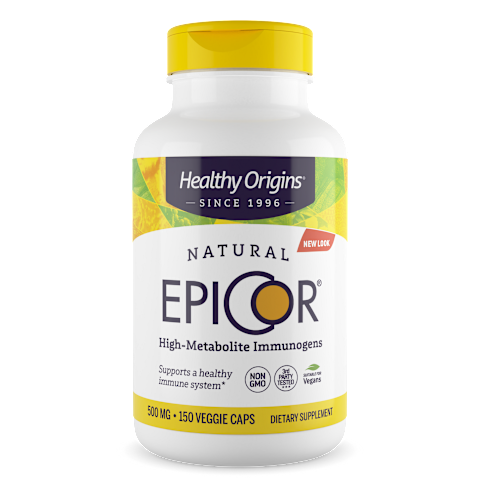What The Heck Is A POSTbiotic & How Can It Support My Gut & Immune Health?

These days, we know that the gut is responsible for more than just a strong feeling. Research is showing us that a healthy gut may be the secret to a stronger immune system—not to mention better overall health. Nourishing it with friendly bacteria, aka probiotic supplements, is one of the ways to keep it happy.* Lately, there's been some buzz about a different type of "biotic": the postbiotic, which can also help keep things in balance.* What's the benefit of getting postbiotics in your daily supplement?* We asked a top registered dietitian to break down the science-backed facts:
1. Postbiotics are the end goal of gut health.*
When you get probiotics through functional foods (think yogurt, kefir, tempeh) or supplements, you're ingesting live bacteria and other microorganisms, which then help populate your gut (also called your gut microbiome) with good bugs.* The idea is to balance out the good and bad bacteria, which may help with digestive health and immune function. But here's what most people don't know: After probiotics do their thing through a fermentation process, they produce postbiotics. "These are nonliving beneficial compounds and metabolites; they're the byproducts of the fermentation process that occurs with probiotics or other microorganisms," says Keri Gans, M.S., R.D., CDN, a registered dietitian in New York City. Their job is to support your health, so you definitely want postbiotics hanging around your gut.*
2. Supplements are a smart, easy way to get your postbiotics.*

You can get postbiotics in your diet via fermented foods such as kimchi, sauerkraut, miso, and kefir, but it's hard to know if you're absorbing enough and the right types that have health benefits, says Gans. "Taking a postbiotic in a dietary supplement can ensure you're getting a specific amount every day," she says.* The most well-studied postbiotic supplement is a whole food fermentate called EpiCor® postbiotic, which can be found in some well-known immune and digestive health supplements including Healthy Origins EpiCor and Country Life Gut Connection Immune Balance.*
3. Not all postbiotic ingredients are created equal.*
How these probiotic ingredients are produced affects their effectiveness.* Most ideal are whole food fermentates where there's no extraction or purification process, which may compromise the quality of the metabolites. EpiCor® postbiotic is a whole food fermentate made through a fermentation process using a yeast called Saccharomyces cerevisiae. "To make sure you're getting a whole food fermentate, check labels for ingredients such as EpiCor® postbiotic, yeast fermentate, dried yeast fermentate, or dried fermentate made using Saccharomyces cerevisiae," says Gans.
4. Postbiotic fermentates have science-backed benefits.*
Human clinical trials have suggested that EpiCor® postbiotic can help support gut and immune health year-round including supporting nasal comfort.* Research has shown that to get these health benefits, all you need is 500 mg of a postbiotic ingredient—the amount you'll find in many postbiotic fermentate digestive health supplements, including those listed above.*
